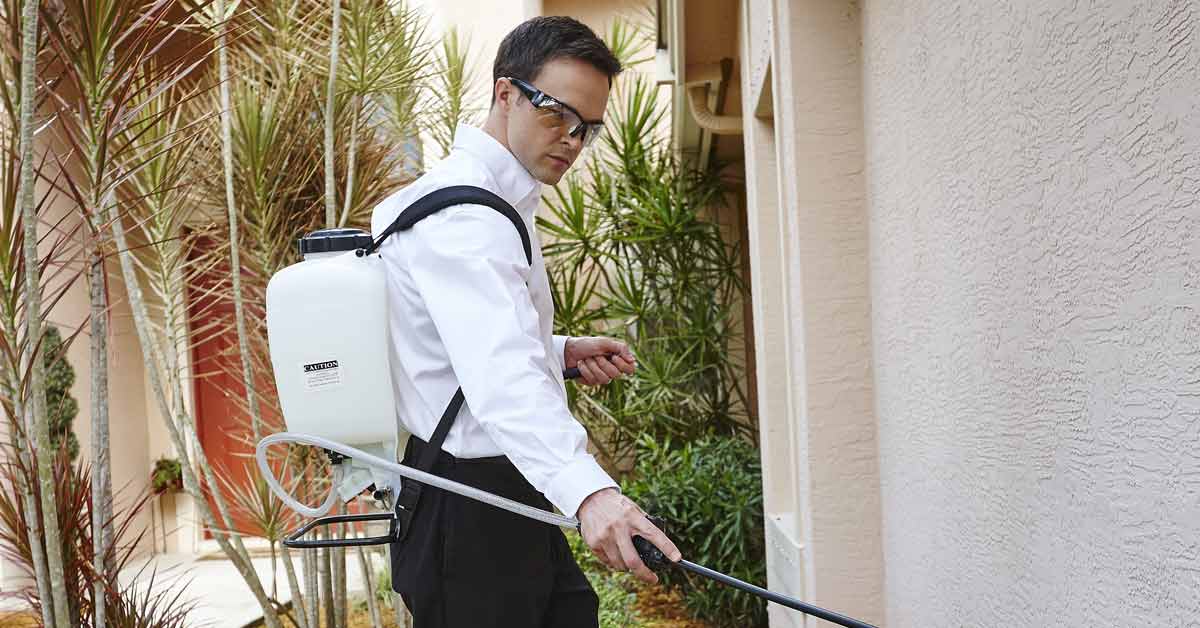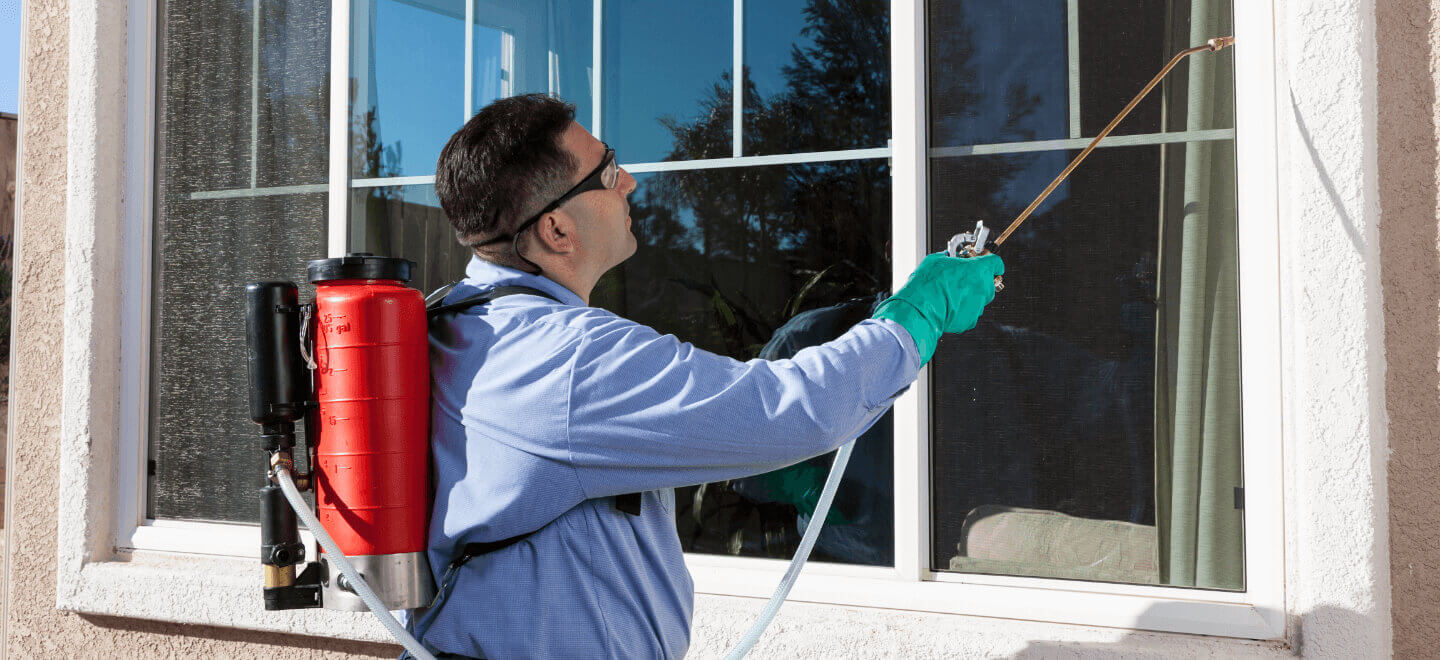Orem Pest Control Solutions: Safeguarding Your Home, Inside and Out
Orem Pest Control Solutions: Safeguarding Your Home, Inside and Out
Blog Article
Discovering the Different Kinds Of Pest Control Techniques and Their Applications
Pest control is a crucial facet of preserving a healthy and risk-free setting, whether it be in property, industrial, or farming settings. From chemical techniques that target details insects to organic approaches that harness all-natural predators, the realm of insect control is huge and diverse.
Chemical Insect Control Methods
Chemical insect control methods are extensively used in farming and parasite monitoring to properly eradicate or manage pest problems. These methods involve the usage of chemical substances, such as insecticides, pesticides, and herbicides, to decrease or get rid of parasite populaces that pose a danger to crops, animals, or human health. Pesticides, for instance, target certain parasites like weeds, rats, or pests, interrupting their life cycles or causing direct harm upon contact. Herbicides are specifically made to regulate unwanted plants that completes with plants for resources and nutrients. Pesticides, on the various other hand, are made use of to battle insect parasites that can harm plants and transfer illness.
While chemical parasite control strategies can be highly efficient in handling insect populations, they additionally increase worries regarding potential ecological and health and wellness risks. Incorrect use or overuse of chemical pesticides can lead to air pollution of air, dirt, and water, damaging non-target microorganisms and causing lasting ecological damages. In addition, duplicated direct exposure to chemical residues might present health and wellness risks to farmworkers, customers, and wildlife. Therefore, it is vital to follow safety and security standards, utilize integrated pest monitoring approaches, and think about alternative approaches to minimize the adverse influences of chemical bug control techniques.
Organic Parasite Control Methods
 Biological insect control methods use living microorganisms to take care of and lower parasite populations in a environmentally friendly and lasting way. This technique includes introducing all-natural killers, parasites, or pathogens to regulate parasites without the requirement for synthetic chemicals. One typical technique is the release of ladybugs to battle aphids in yards, as ladybugs are natural killers of these devastating insects. An additional example is making use of Bacillus thuringiensis (Bt), a microorganism that creates toxins lethal to particular insect larvae, to manage insects and caterpillars.
Biological insect control methods use living microorganisms to take care of and lower parasite populations in a environmentally friendly and lasting way. This technique includes introducing all-natural killers, parasites, or pathogens to regulate parasites without the requirement for synthetic chemicals. One typical technique is the release of ladybugs to battle aphids in yards, as ladybugs are natural killers of these devastating insects. An additional example is making use of Bacillus thuringiensis (Bt), a microorganism that creates toxins lethal to particular insect larvae, to manage insects and caterpillars. 
Biological pest control methods supply numerous advantages over chemical methods. Overall, organic parasite control techniques present a efficient and natural choice to typical chemical therapies, promoting a well balanced environment and healthier atmospheres.
Physical Bug Control Approaches
Using physical methods to regulate insects involves making use of non-chemical or mechanical methods to handle and mitigate pest problems efficiently. These methods depend on physical barriers, traps, and various other techniques to hinder and eliminate bugs without using damaging chemicals. One usual physical pest control method is the installation of internet, displays, or fencings to block insects from entering details areas. This approach is particularly reliable in shutting out bugs and small animals from buildings or yards.
Another physical method is the use of catches, such as breeze traps for rats or pheromone catches for insects. These catches goal to record insects without posing any type of danger to human beings or the atmosphere. Additionally, physical control methods can consist of techniques like handpicking parasites off plants, making use of vacuum tools to eliminate insects, or using warmth treatments to eradicate bed pests and other insects in ravaged locations.
Integrated Bug Monitoring Approaches
Implementing an alternative approach to pest administration, Integrated Bug Monitoring (IPM) approaches aim to incorporate numerous effective strategies to avoid and control parasite infestations while lessening environmental influence and guaranteeing lasting insect control practices. IPM includes the integration of multiple control methods such as biological control, social methods, mechanical control, and the careful use chemicals.

Moreover, IPM emphasizes the importance of monitoring and assessing pest populaces to determine one of the most proper control techniques. By executing IPM methods, insect control initiatives become more targeted and efficient, minimizing the risks linked with extreme chemical use and advertising long-term bug management solutions.
All-natural and Organic Insect Control Options

One prominent natural pest control method is neem oil, originated from the seeds of the neem tree, which works as a repellent and interrupts the growth and growth of insects. Diatomaceous planet, an all-natural silica-based powder, is one more effective natural parasite control option that functions by dehydrating pests upon call. By integrating natural and all-natural parasite control options into bug monitoring approaches, people can properly control insects while decreasing damage to the setting and advertising lasting techniques.
Final Thought
To conclude, numerous parasite control methods such as chemical, biological, physical, integrated parasite management, and natural choices are available for properly managing insect problems. Each method has its very own benefits and applications depending upon the type of bug and the environment. By recognizing the various kinds of parasite control strategies and their applications, individuals can make educated choices on the most suitable approach to regulate insects and protect their residential property.
Chemical bug control methods are widely made use of in agriculture and pest administration to efficiently eliminate or manage pest infestations - Orem Pest Control. Natural bug control methods entail using biological control agents, such as predators or bloodsuckers, to handle bug populaces. By integrating natural and all-natural parasite control options right into bug administration approaches, individuals can effectively control bugs while lessening harm to the setting and promoting lasting techniques
In verdict, different parasite control techniques such as chemical, biological, physical, integrated bug management, and all-natural alternatives are offered for effectively resource handling parasite problems. By understanding the various types of parasite control methods and their applications, find here people can make informed decisions on the most suitable technique to manage bugs and protect their residential property.
Report this page